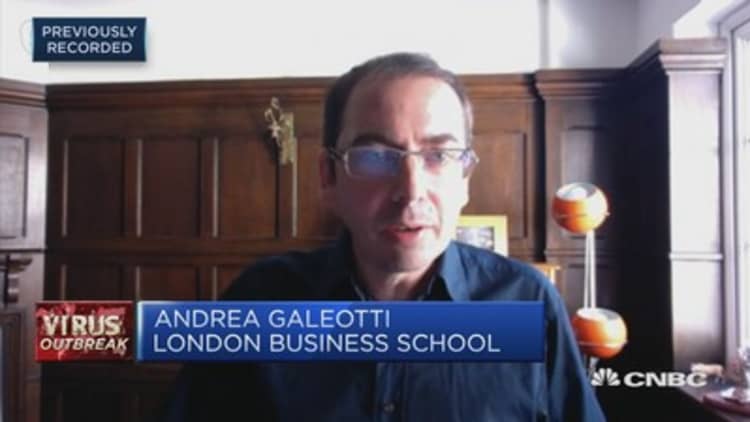Six weeks ago, RUCDR Infinite Biologics changed its focus. In that short time, it developed a saliva test for the coronavirus.
On Monday, the lab and partners Spectrum Solutions and Accurate Diagnostic Labs received emergency use authorization from the Food and Drug Administration for the test to be administered by a trained health professional.
Other U.S. labs need to make similar pivots to increase testing capacity to help the United States get back to business, RUCDR Chief Operating Officer Andrew Brooks told CNBC on Thursday.
"This is not our regular business. We have turned our entire lab, 200 technicians, all of our resources towards contributing here. This was not our core business a month and a half ago," he said in a "Squawk on the Street" interview. "That's going to require other labs to do the same."
The test costs $65, he said.
The Rutgers University-backed lab can process 10,000 samples per day and it is increasing capacity, said Brooks, who also serves as director of technology development of the lab.
The U.S. has struggled since the beginning of the outbreak to ramp up the country's capacity to test for the coronavirus. Stringent federal guidelines limited who was eligible for testing. Shortages of trained personnel and necessary supplies like the test kits themselves and the chemicals used to process tests have limited labs' abilities to increase capacity.
Vice President Mike Pence said Wednesday the U.S. has now tested over 3 million people, which is less than 1 percent of the population.
"As a community, we were not prepared," Brooks said. "The testing for something like this has never been considered at scale."
Brooks previously told CNBC the saliva test could be a game changer. He said the test is not dependent on supplies like nasal swabs, demands less use of precious personal protective equipment and enables more tests to be processed every day.
He said the lab now wants the FDA to expedite approval of the test for home use.
Ramping up testing capacity in the U.S. will be key as state and federal officials weigh lifting social distancing restrictions and reopening the economy, former Obama White House health policy advisor Dr. Ezekiel Emanuel told CNBC.
"I don't think we're ready to open up," he said Thursday on CNBC's "Squawk Box.". "We really need to be doing millions of tests per day. ... If you want to actually open up the economy, you need to actually have a test that is looking to lock down the spread and prevent more spread of the disease."
Not only does the country need more testing, he said, but it also needs easier testing.
Brooks said his lab's saliva test, which simply requires someone to spit into a cup, will expedite the system.



